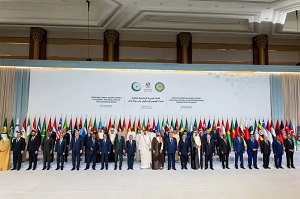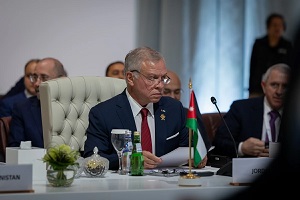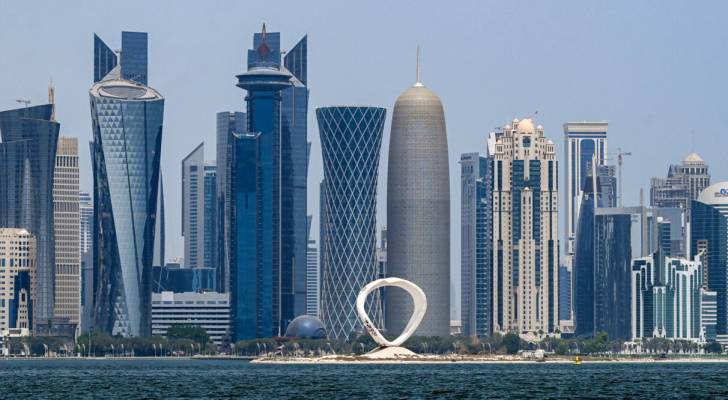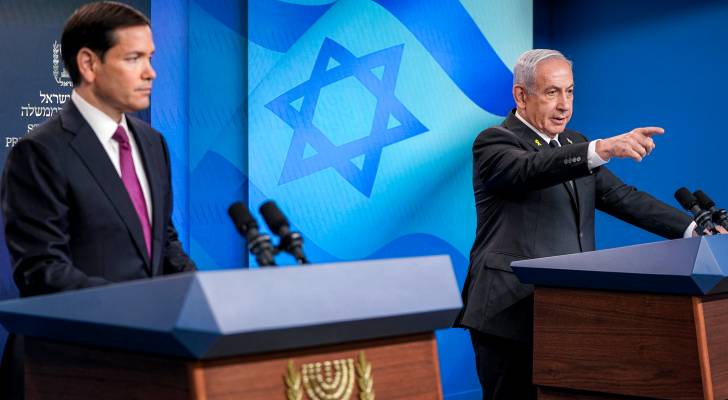US visa ban on Palestinians creates legal, diplomatic debate
The Jordan Times
AMMAN — The United States said on Friday it will deny visas to Palestinian Authority (PA) officials seeking to attend next month’s UN General Assembly in New York, a decision that has triggered criticism from the Palestinians and their supporters.
The State Department announced that Secretary of State Marco Rubio ordered the denial and revocation of visas for representatives of the Palestine Liberation Organisation (PLO) and the PA. The move was justified on “national security” grounds, accusing Palestinian leaders of turning to international courts against Israel and pushing for unilateral recognition of a Palestinian state.
Israel welcomed the measure. Foreign minister Gideon Saar called it a “bold step”, thanking the Trump administration for supporting Israel and rejecting what he described as unilateral Palestinian actions.
The PA strongly condemned the decision, saying it violated international law and the UN Headquarters Agreement. Palestinian President Mahmoud Abbas had planned to address the Assembly, according to his UN envoy Riyad Mansour.
The ministerial committee assigned by the Joint Arab-Islamic Extraordinary Summit has expressed its “deep regret” over the US Department of State’s recent decision to deny entry visas to the Palestinian delegation to the UN summit.
UN spokesman Stephane Dujarric said it was important that all states and observers, including the Palestinians, be able to participate in the high-level meetings. “We obviously hope that this will be resolved,” he said.
The visa ban comes as France leads an international effort to recognise a Palestinian state. French President Emmanuel Macron said the war in Gaza, now in its second year following Hamas’s October 7, 2023 attack, makes it urgent to move forward with peace efforts. Canada and Australia have joined the French initiative, while Britain has signalled it may also recognise Palestine unless Israel agrees to a ceasefire.
European Union foreign policy chief Kaja Kallas called on Washington to reverse the decision. “In the light of the existing agreements between the UN and its host state, we all urge for this decision to be reconsidered,” she said after meeting with EU foreign ministers in Copenhagen. French Foreign Minister Jean-Noël Barrot also stressed that no restrictions should apply to access for the General Assembly.
Laith Nasrawin, associate professor of public law at the University of Jordan, said the US decision raises “serious legal questions” under the 1947 UN Headquarters Agreement, which obliges the United States to allow entry for all member states and observers. He added that Article 105 of the UN Charter guarantees representatives the privileges and immunities they need to carry out their duties, including freedom of movement.
Nasrawin noted that Palestine could pursue several options, such as raising the matter in the General Assembly, bringing it before the UN’s legal committee, or seeking an advisory opinion from the International Court of Justice. He also warned that domestic law cannot override treaty obligations.
The dispute highlights wider divisions in the international community. The United States and Israel argue that recognising Palestine rewards Hamas, while France and others insist that the war in Gaza makes renewed peace efforts urgent. The visa ban has now become part of that larger debate over Palestinian representation at the UN.
Latest News
-
 Arab-Islamic Summit issues final statement, condemns Israeli attack on Qatar, calls for accountability
Arab-Islamic Summit issues final statement, condemns Israeli attack on Qatar, calls for accountability
-
 King delivers Jordan's address at Emergency Arab-Islamic Summit in Doha
King delivers Jordan's address at Emergency Arab-Islamic Summit in Doha
-
 Leaders unite against ‘Israeli’ strike on Qatar at emergency Arab-Islamic Summit
Leaders unite against ‘Israeli’ strike on Qatar at emergency Arab-Islamic Summit
-
 Gaza’s death toll rises to 64,905: Health Ministry
Gaza’s death toll rises to 64,905: Health Ministry
-
 Rubio promises Netanyahu “unwavering support” to ‘Israel’ in Gaza goals
Rubio promises Netanyahu “unwavering support” to ‘Israel’ in Gaza goals